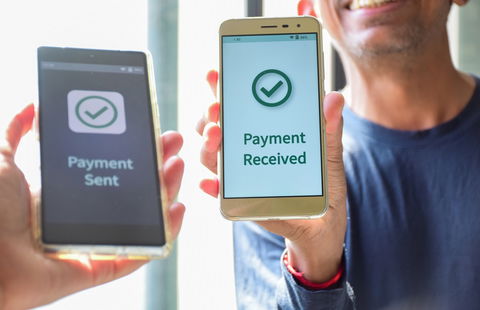Unrecognised numbers can be an indication of a phone scam or phishing.
Credit: JOURNEY – STUDIO7 – Shutterstock
Answering a call with a casual ‘yes’ might seem harmless, but these days it could hand crafty fraudsters everything they need to drain your savings.
Scammers can use just one word to authorise transactions or open accounts under your name. They can even pretend to be you before banks and service providers. This one-word scam is a growing trend. Here’s how to stop it.
Saying “yes” to a phone call can lead to fraud.
Imagine your phone rings. You pick up, and on the other end…silence. Maybe someone pretending that they are from your bank calls and asks: “Can you confirm that you’re Mr Smith?” Just say ‘yes’.” They will hit the record as soon as you say yes. This simple “yes” is their golden ticket.
- First ContactYou receive an unknown call. You could get a call from someone claiming they are your bank, utility company or delivery service. It could also be complete silence.
- Voice CaptureYou can record yourself saying “yes,” si” or other affirmative sounds.
- ExploitationFraudsters use your voice samples to convince banks and companies that they have your permission. They can transfer money on your behalf, set up direct debits, or apply for credit cards.
- Your balance has vanishedYou may find that your money is gone, and you have new debts on your name. All of this has been authorized by you.
A recorded “yes”, especially for low risk tasks, is often accepted by banks as a valid authorisation. Scammers use this blindspot to slip past security measures meant to protect people.
How to protect yourself from one-word scams
This scam is not helped by blocking malware or avoiding links that are phishing. This scam is based on real-time tricks, so it’s important to change the way you handle phone calls.
- Avoid using one-word responsesDo not answer “yes”, “si” or even “oui”. Begin by saying “I am sorry, who is calling?” Or “Can I get your name and company?”
- Voicemail can be used as a filterIf you don’t recognize the number, leave it on voicemail. Genuine organisations will leave you a clear message.
- Verify suspicious callsCall the official number on your statement or their website. Never call numbers given by the caller. Then call the official number on your statement or their website—never dial numbers given by the caller.
- Set an incoming call passphraseAsk your bank for a secret phrase, word, or code to use when you make phone calls. This way, your bank can’t just proceed with a simple “yes.”
- Installing call screening toolsMany apps will flag up numbers that may be scams or spam. Although not foolproof they can reduce nuisance calls.
- Report dubious callsInform your bank of any attempts to capture voice. They will be able to protect you better and others if they have more information.
By treating each unexpected call with a pinch of scepticism and never giving away that magic word—you’ll put scammers back in their box.
Saying “Yes” to a call can put your money at risk
You might find it strange that a tiny word can have such power. In the age of voice authentication, a harmless “yes” is enough to validate a high-value transaction. Scammers do not need your bank card or password; they only need to hear your voice.
Fraudsters prefer the low-tech method. No phishing links to click and no viruses to download. You, your phone, and a quick yes. It’s best to slow down and ask questions of every caller.
Pause the next time your phone rings if you do not recognize the number. Avoid answering with a default response. Ask “Who is this?” Take a deep breath and ask, “Who is this?” You can also hang up to check your voicemail. You could avoid a financial disaster with a moment’s hesitation.
Keep your mind sharp, remain sceptical, and don’t give that one-word response.
 Costa News Spain Breaking News | English News in Spain.
Costa News Spain Breaking News | English News in Spain.






